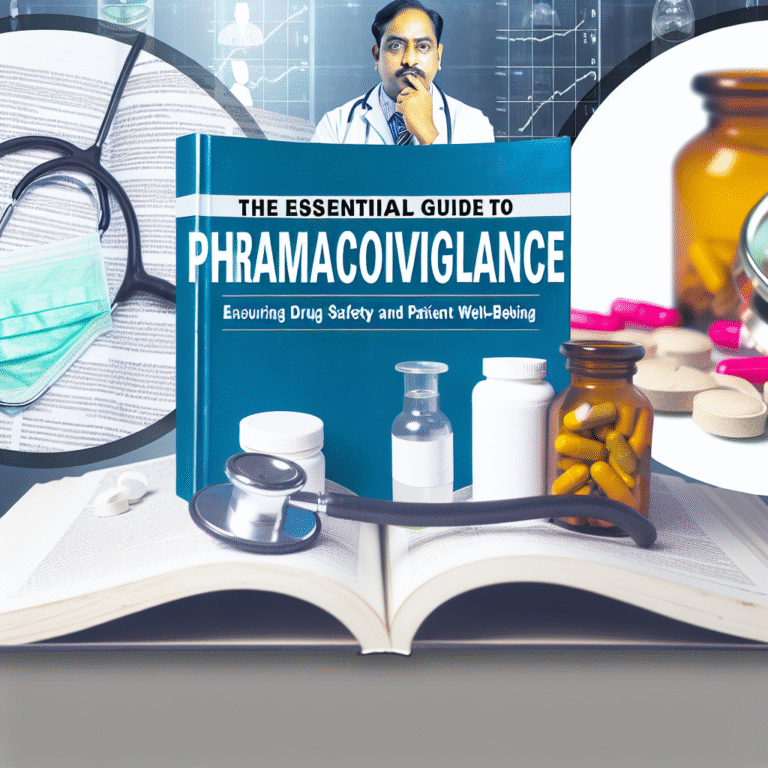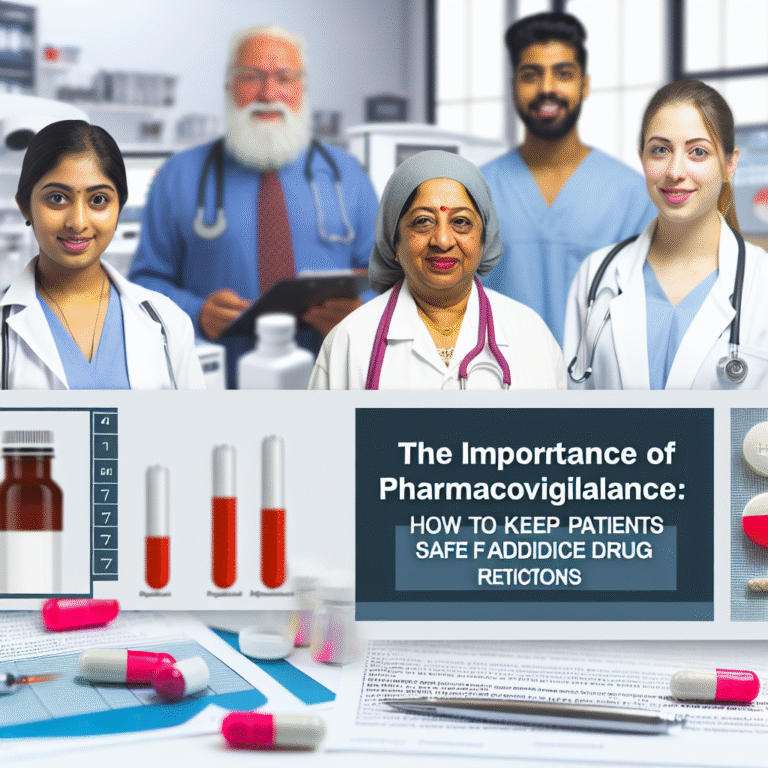How to Launch a Career in Pharmacovigilance: Essential Skills and Training Opportunities
How to Start a Career in Pharmacovigilance: Important Skills and Learning Opportunities
Introduction
Pharmacovigilance is a very important area in healthcare and medicine that helps to make sure medicines are safe and work well. People in this field carefully watch and study how drugs affect us, especially looking out for any bad effects. If you care about keeping patients safe and healthy, working in pharmacovigilance can be a great career for you. This blog post will help you learn the skills and education you need to get started in this rewarding field.
Understanding Pharmacovigilance
Pharmacovigilance is the science of finding, understanding, and preventing bad effects from medicines or any problems related to drugs. It is very important for making sure that medicines do more good than harm. People who work in pharmacovigilance have different jobs, like looking at data from drug tests, watching how drugs work after they are sold, and sharing reports with important agencies. This helps find and fix any dangers from drugs to keep patients safe.
Important Skills for a Career in Pharmacovigilance
Technical Skills
1. Knowing about pharmacology (the study of drugs) and biomedical sciences is key for understanding drug safety data.
2. Being good at using data systems and software tools for keeping track of drug safety information is important.
3. You need to be able to understand clinical trial data to know if drugs are safe and to make good choices.
Interpersonal Skills
1. You need to be good at communicating clearly, so you can explain important findings to others.
2. Working well with others, like healthcare professionals and coworkers, is important.
3. Problem-solving and critical thinking skills help you notice and solve safety issues quickly.
Other Skills
1. Paying attention to details is important for making sure reports and data are correct.
2. Being able to work quickly and meet deadlines is crucial since this field moves fast.
3. The field is always changing, so being willing to keep learning and adapting to new things is very important.
Education Paths
Undergraduate Degree Options
1. You can start with a Bachelor’s degree in Pharmacy, Medicine, or Biotechnology.
Advanced Degrees
1. You can continue with a Master’s or PhD in Pharmacovigilance, Clinical Research, or Public Health.
Certifications and Diplomas
1. Getting pharmacovigilance certifications from known places, like the Drug Safety Associate Certification, can help.
2. Online diploma courses can provide special training if you want to focus on certain areas in pharmacovigilance.
Learning Opportunities
Internships and Starting Jobs
1. Getting real-world experience through internships or starting jobs is very helpful.
2. Companies like AstraZeneca, Novartis, and Roche often have internships in pharmacovigilance.
Professional Growth Programs
1. Workshops and seminars about drug safety can improve your knowledge and skills.
2. Groups like the DIA (Drug Information Association) have helpful learning events and seminars.
Online Courses and Resources
1. Websites like Coursera and Udemy offer courses about pharmacovigilance.
2. Reading books like the “Textbook of Pharmacovigilance” can also help.
Building a Network
Industry Events
1. Attending events like the DIA Global Annual Meeting can help you meet others in the field.
2. Conferences like the Drug Safety Congress are also great for learning new things.
Professional Groups
1. Joining groups like the International Society of Pharmacovigilance (ISoP) provides good resources and connections.
2. Using LinkedIn and other websites to network can help you find job leads and advice.
Job Search Strategies
Resume and Cover Letter Advice
1. Make your resume show your skills and experiences clearly.
2. Customize your cover letter for each job to show you are excited and perfect for the role.
Interview Tips
1. In interviews, you may be asked about your knowledge of pharmacovigilance methods and rules.
2. Show your passion for drug safety to stand out from other candidates.
Job Search Websites
1. Websites like Indeed, Glassdoor, and LinkedIn list jobs in pharmacovigilance.
2. Setting job alerts will keep you updated on new job opportunities.
Challenges and Future Trends in Pharmacovigilance
Like other fields, pharmacovigilance has challenges, like dealing with new rules and managing lots of data. But, the field is changing fast, using new technology like artificial intelligence to make drug safety checks better. There are many exciting chances in the future as pharmacovigilance keeps being important in keeping patients safe in the busy world of medicine.
In conclusion, starting a career in pharmacovigilance lets you make a real difference in healthcare and patient safety. By getting the right skills, education, and training, you can start a successful journey in this field. Stay ready to handle the present and future challenges in drug safety, and join us at Pharmacovigilance Foundations to learn how you can start this rewarding career path.






